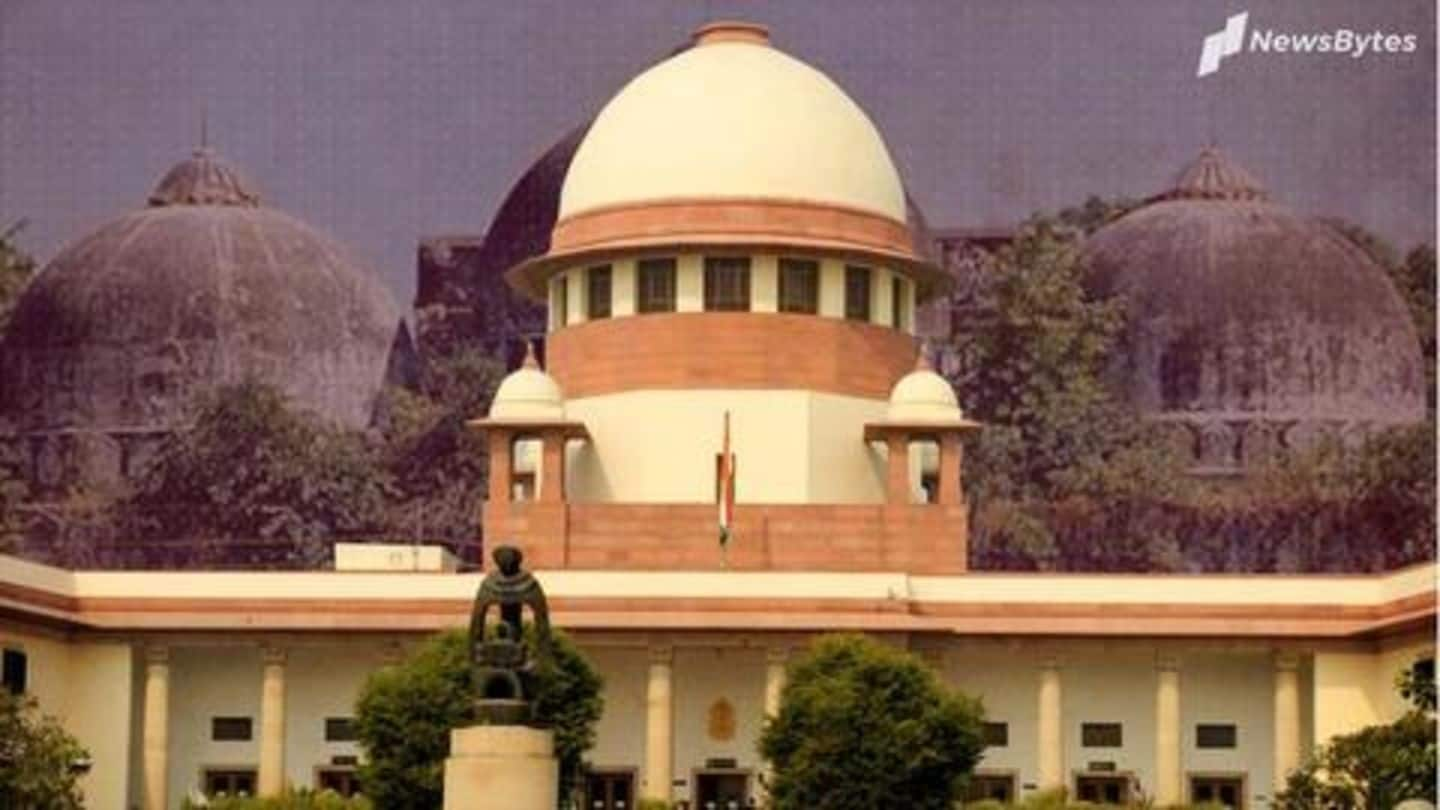
Top Muslim leader explains why they didn't seek Ayodhya-verdict's review
What's the story
Last week, the Supreme Court put a full stop on the long-drawn Ayodhya dispute. By awarding 2.77 acres of land to Hindus and giving 5 alternate acres to Muslims in the Uttar Pradesh town, the bench made many happy and upset some others. But despite some displeasure, the Muslim side decided to not seek a review. A top Muslim leader explained why. Read on.
Backstory
Context: Ayodhya dispute changed India as we knew it
For decades, Ayodhya had been boiling with tension as Hindus claimed the 16th-century Babri Masjid was built on a temple where Lord Rama took human form. After the mosque was demolished in 1992, India burnt due to widespread riot. In 2010, the Allahabad High Court divided the plot equally among Sunni Waqf Board, Nirmohi Akhada, and deity Ram Lalla, prompting them to approach SC.
Reactions
After verdict, Muslim side's lawyer said he wasn't satisfied
On November 9, CJI Ranjan Gogoi-led five-member constitutional bench handed over the land to Hindus paving way for construction of Ram Temple at the site. Soon after the verdict, Zafaryab Jilani, the legal counsel of the Sunni Waqf Board, called it "unjust". But Zafar Farooqui, the chairperson of Uttar Pradesh Sunni Central Waqf Board, clarified they will not file a review.
Quote
Farooqui gave two reasons behind taking the decision
"First, it had been our clear stand from day one that we would abide by SC's verdict. Second, this issue has created a deep divide in our society over the years. Going for a review could have meant vitiating the atmosphere again," he told NDTV.
Details
Separately, there are varied demands about mosque land
As it turns out, there are different opinions about where the 5 acres of land should be sought. For example, Iqbal Ansari, one of the main litigants of the case, said that the plot for mosque should only be given in the acquired land of 67 acres. If that doesn't happen, the offer should be rejected, he advocated. But Farooqui said conclusions are diverse.
Quote
Final opinion will be formed by month end: Farooqui
"The opinions being expressed by people are quite diverse, but we are still in process of getting an opinion on the action required to comply with the order. Once that opinion comes in later this month, we will place it before the board," he said.
Details
Can't speak for other stakeholders, underlined Farooqui
Further, the top Muslim leader said he hasn't been able to speak to other Muslim litigants about their takeaway. "The Sunni Waqf Board decided to not go for a review and gave me the power to deal with the issue. However, the other stakeholders -- including the All India Muslim Personal Law Board -- are free to take their own decisions," he added.